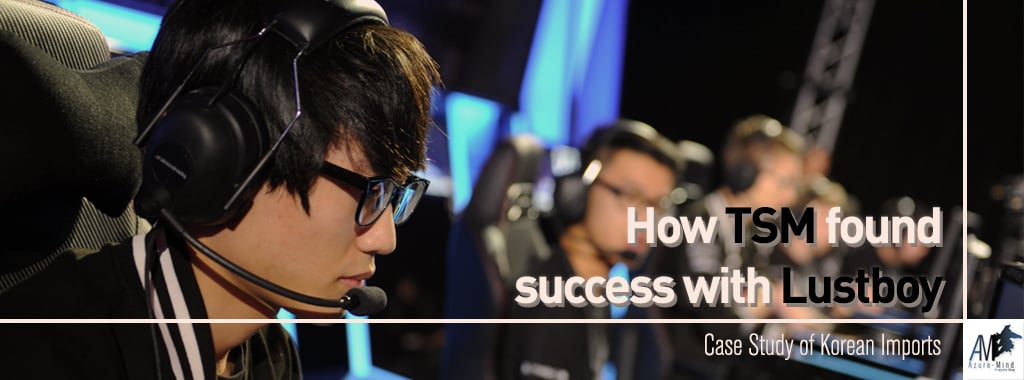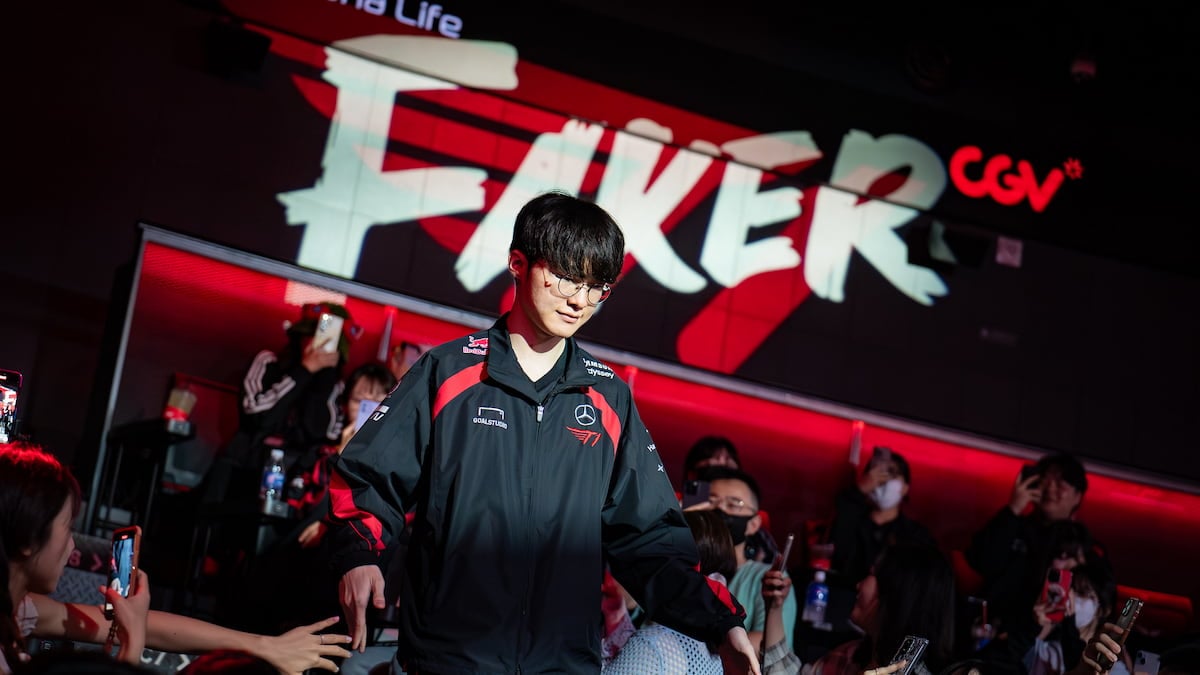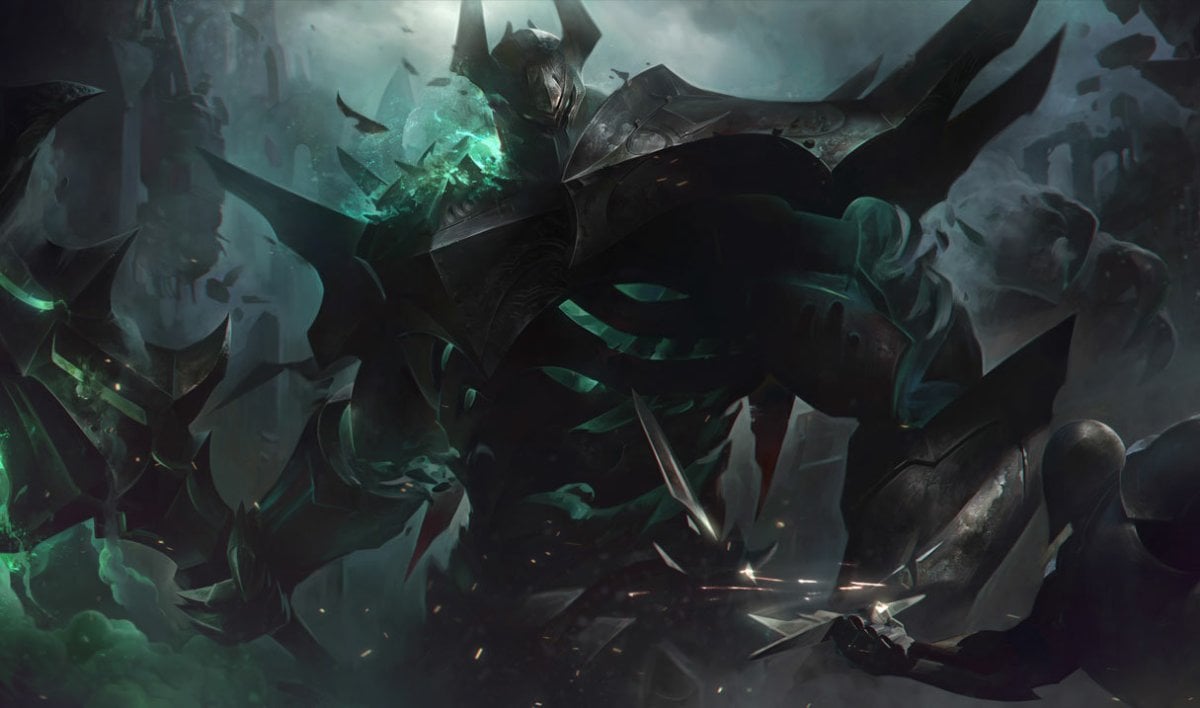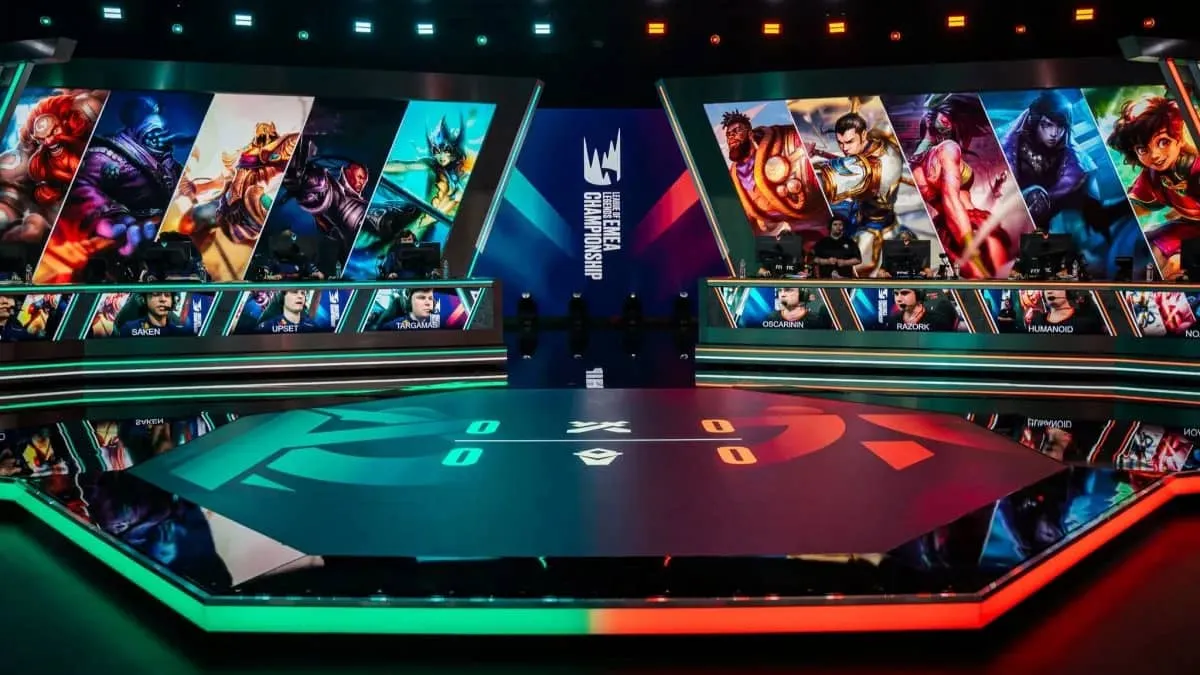
One of the favorite discussion topics in North America are Korean import players in North America and how well they are performing. Korean players had this weird bias of how they are automatically better than any North American player and will dominate because of their experience playing in the best region; even non-pros. Personally, with the many “incidents” we had over the years, I think that people have abandoned the silly notion that ANY Korean will be dominant; LCK pros still apply. Season 5 is going to be the biggest season of League of Legends yet. The new Summoner’s Rift brought about new jungle and objective changes as well as a slew of new foreign talent to the North America and Europe region from everyone’s favorite country for e-Sports; South Korea. Unfortunately, many import players are not finding success that the North American audience as well as the players were expecting. However, among all the Korean Import players in North America and Europe, one player has seen the most success as a Korean import player; Team Solomid’s Ham Jang Sik, a.k.a, “Lustboy”. What is different about Lustboy that he is able to play more than one split of North American LCS? Does TSM have the secret Bay Life formula that no other teams knows about? We will explore the steps TSM took with Lustboy that is publicly known and see how they integrated Lustboy in to the team.
Hype: The Double-Edged Sword

Let’s start from the beginning. With the departure of Xpecial from TSM, everyone’s attention was on Reginald to see who he will pick as Xpecial’s replacement. At the time, there were not many support players that could fill Xpecial’s position that wasn’t already part of an LCS team. The news of TSM announcing Gleeb as Xpecial’s replacement was a big surprise and was heavily criticized by the community. Following lackluster performances, rumor floated around Reddit that Lustboy, who left CJ Entus Blaze, was coming to North America to join TSM. Everyone was excited by the news that a renowned Korean OGN pro was coming to North America to play for TSM of all teams; I was one of the people who boarded the hype-train. A Korean support player who played on one of the premier Korean League of Legends team coming to North America?; the hype intensified. There is a thing about hype; it is a double-edged sword. Hype raises the excitement and awareness of the player and starts discussions on how the player will do. On the other hand, hype is a disgusting monster that raises expectations out of the water and puts on this lingering pressure to perform well or be bashed by the community. Lustboy did not disappoint and performed very well in his first split in the LCS, finishing with a 2.73 KDA with four different champions played over the course of the season. TSM managed to clench first place as the best in North America LCS 2014. He would join TSM to the world championship in South Korea and made it to the quarter finals which in my books, was an impressive feat. Even now, Lustboy is putting on an impressive performance and synergy with Wildturtle, proving that he is one of the best supports in North America at the moment.
Lustboy did not fall victim to the return swing of the hype sword and brought the performance that TSM needed. Unlike Seraph of CLG, who had a bigger hype-train than Lustboy, came up short and eventually was replaced with ZionSpartan. Seraph was similar to Lustboy in terms of his initiation into North America; he was hyped for being a Korean player who played in OGN (albeit Seraph only played one game but nonetheless, played in OGN) and showed his skills through his climb through the North American ranked ladder. However, Lustboy succeeded while Seraph has failed to meet expectations. What was different?
Language Barrier: How crucial is it?
This has to be the biggest factor and/or excuse when people try to blame/defend Korean Imports. “He is mechanically skilled but it is the lack of communication that is the problem”; I wonder how many times this line was used. The community is not wrong when they mention the language barrier problem. Language barrier is a key factor when discussing the performance of import players. Can they communicate with the rest of the team in terms of listening to shot calls and calling out observations? (Cool down timers, ward spotted, etc.) If not, the team has to find a solution to this problem in order to develop a means of communication. However, from observing teams with Korean imports from last year’s world’s and this year’s LPL, it can be argued that language fluency does not necessarily hold a team back from performing well. There are instances where teams with mixed nationalities performing very well due to the talent they bring to the table. Two teams comes to mind; Star Horn Royal Club in last year’s world and current roster of Edward Gaming in LPL.

Let’s start off with Royal Club first since everyone who plays League of Legends probably watched the world’s finals. Coincidentally, Royal Club had a Korean support on their team; Zero. He was paired up with Uzi, one of the best Marksman to play the game. From watching OGN content and interviews with Zero and Insec, we learned that they were not fluent in Chinese at all. They communicated via mini-map ping sounds and simple English phrases like “Go” or “Kill”. With this limited amount of communication, they somehow managed to make it the final stages of the World championship to face against Samsung White. Some might say their one and only strategy of “Feed the Uzi” does not require much talking since there is no complex strategy involved such as lane swaps and rotations, but results speak for themselves and shows that if the team has a winning strategy, albeit an old-fashioned one, you can still win with limited communication. Not against Top tier Korean teams though.

Let’s observe EDG now. The Marksman of Samsung Blue, Deft, and Samsung White mid laner Pawn has joined EDG in the new season, bolstering the team’s dynamic with the Korean talent. As of writing this article, EDG is first in the LPL standings with 8 wins and 1 losses. While I do not know how much Chinese Deft and Pawn know, but I doubt it is to any more than what Zero and Insec can do. That being said, Deft and Pawn shows no signs of tilting in the new environment and letting their skills do the talking putting on an impressive performance for the first half of the LPL season (Pawn struggled in some games but hey, they’re winning…) League of Legends is a very communication focused game where the players need to update each other on the enemy team’s location, ward placements, timers, ability cool downs and etc at the highest level of play. However, with the features that Riot implemented into the game client such as jungle timers and smart ping system, the need for verbal communication has been lessened a bit, allowing the player’s skill to make up for the language barrier to a certain degree.
On Summoning Insight episode 30 where Xpecial appeared as a special guest, he talked about his partnership with Piglet and how the language barrier might affect the bottom lane performance. Xpecial stated that there is not much communication going on at bot lane except for ability cool down timers and whether the enemy’s ultimate was up or down. We have two examples of team’s with Korean imports finding success with the existence of a language barrier and opinion of one of the best supports in North America supporting the idea that verbal communication is not the most crucial thing to a team’s success; at least for bottom lane. If the language barrier is not the “be-all, end-all” factor, what’s holding Korean player’s back from finding success? I would look towards the team environment and the player’s effort to adapt to the culture.
Team Solomid
When Lustboy first came to TSM and posted a picture of a whiteboard with instructions (or whatever it was), I really thought the plan was well made. Daily living rules aside, the one thing that caught my attention was the “No speaking Korean” rule and steps that Lustboy should take when approaching other teammates. As foreigner, I couldn’t agree more with the way that TSM handled breaking Lustboy into the North American culture and I respect them for that. Living in a foreign country and not being able to speak the native language is frustrating and embarrassing. The embarrassment sometimes prevents us to speak because of the fear of other’s people’s reaction towards you. Kudos to TSM for making Lustboy feel comfortable to speak broken English and are willing to be patient with him. Aside from these rules, Lustboy had to meet the obligations of being a TSM member such as doing Vlogs from time to time, streaming and sponsorship activities such as the recent “TSM: Legends” series.

Hearing him trying to speak English even though it must be difficult for him was inspiring to see as it showed his dedication to improve his English to communicate with his teammates better. I’m sure seeing Lustboy try his best must have a positive influence with the rest of the team to be patient with him and understand that it will be difficult for him to adjust. Knowing that people are willing to listen and wait for you to articulate your thoughts is very heart-warming for foreigners trying to learn a different language. As of now, he is adjusting fine to the North American culture even doing the whole “LustCena” bit. TSM itself is very friendly as well. Whereas other teams you might see some divides within the team, TSM is unified; they all like each other and are friends. However, this does not mean that TSM is a soft-hearted organization by any means; they have an agenda and players are expected to work.
What I like about TSM’s management is that even though Lustboy was a big name player with a pedigree, they did not do him any favors or catered to his needs; it was the other way around. TSM has hired Lustboy, making him the employee, thus he had to follow TSM’s rules. They will scratch your back if you scratch theirs. Lustboy understood this and worked hard for the team and himself to improve. This is why you never heard a peep from TSM regarding Lustboy of any dramas. Lustboy himself seems to have a friendly personality from what we can see in different media; live and recorded. He is shy yet not afraid to express his feelings especially when he wins which is amusing to see. Maybe his shyness is a change of pace from the rest of the team who can be very rowdy and vocal. TSM has a good balance between work and play where they can make a player feel at home while maintaining the professionalism of an organization. You can call this TSM fanboyism all you want, but results speak for themselves; no other Korean import to North America has yet to produce the results that Lustboy did and they achieved that through supporting each other with resources and effort.
TSM’s great management/lifestyle coaching aside, the strength of TSM cannot be overlooked. TSM has one of the better rosters of players in NA. Even with the new inclusion of Santorin in the jungle, he is producing solid results as one of the dominant NA junglers. Add that to the established pedigree of Dyrus, the number one North American mid-laner Bjergsen and the wild Wildturtle, TSM has an environment where Lustboy does not need to feel pressured o carry or prove himself to live up to whatever hype that the community has for him. Although Lustboy had less expectations than other Korean Imports because he is a support player, but nonetheless, knowing that you don’t have to carry the team to victory should be reassuring to Lustboy to just play his own game when playing. He can carry if he wants to, but he isn’t expected to every single game. If Lustboy do his job as a support player and keeps a positive attitude, his job is secure at TSM. Even Reggie stated that he will never bench a player for performance issues; only attitude. I know it was during a reality web series, but there is truth to his words.
While it is too early in the split to judge on whether the new Korean Import experiment for North America and Europe is a failure for 2015, there is that dangling history of the Seraph Episode that sets doubt in many people. However, seeing how Lustboy is performing in the LCS, should the players themselves give the effort to adapt to the culture and work with the team, they could overcome the burden of the language barrier to affect the team in a negative way. While you can argue that because TSM is a strong team that Lustboy has it easier compared to other Korean import players, I can counter that with the fact that TSM themselves still has problems (but then again what team doesn’t?). Even if on paper they are statistically the stronger team, they are prone to lose to any team in the LCS at any given time. If the import player put in the effort to adapt to the team and develop a solid relationship with the team, then from that point it is the team’s responsibility to perform well and not the responsibility of the hyped up Korean individual.
We are entering Week 5 of the NA/EU LCS and we are already experiencing Korean Import troubles with Team Liquid. While I was very disappointed the drama that occurred especially the mistake that their coach Peter Zhang made, I believe in the staff of Team Liquid to pull forward, hopefully with Piglet on the roster, to make it to the world championship one way or another. Each person has a different way of opening up to other people and operating; they just need to find what works for Piglet like TSM found for Lustboy.
This article goes up coincidentally on Lustboy’s Birthday. As such, I wish you a happy birthday Lustboy. Your hard work is definitely paying off.
-Andy “LastBlues” Shin









Published: Feb 18, 2015 08:52 am